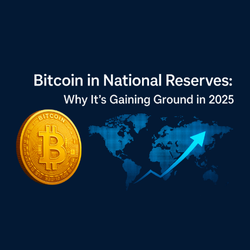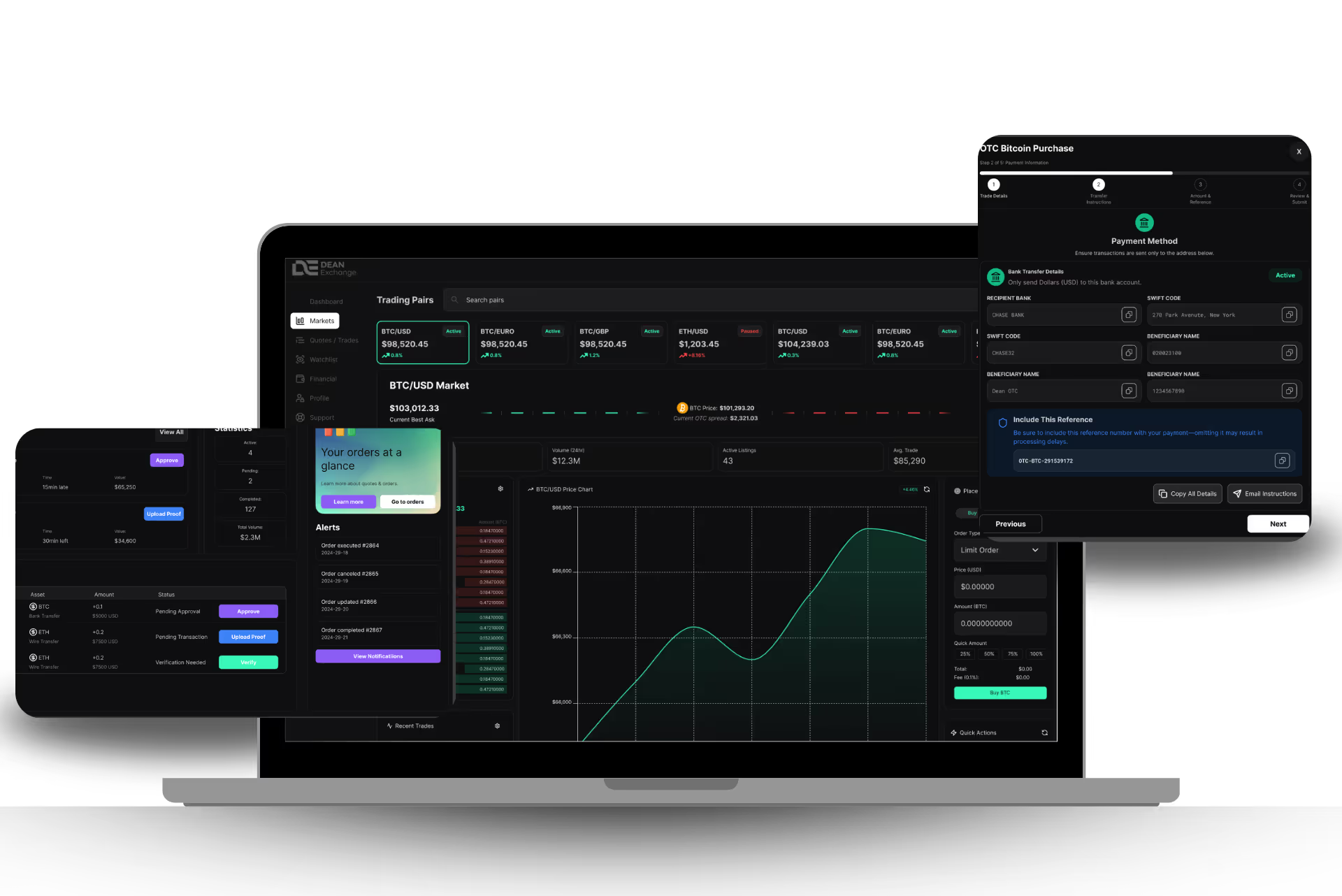By the
This is some text inside of a div block.
This is some text inside of a div block.
•
5
min read

If you’re just getting started with cryptocurrency, it can feel like learning a whole new language. Words like “blockchain,” “DeFi,” and “HODL” are thrown around everywhere—but what do they actually mean?
This blog post is your beginner-friendly glossary of the top 10 crypto terms you need to know. Each term is defined in plain English, with real-world examples to help you understand the concept. Whether you're reading a blog, following market news, or watching a live blockchain session, having a grasp of these terms will make your crypto journey a lot smoother.
At Dean Exchange, we specialize in making crypto easy to understand. Through cryptocurrency tutorials, helpful guides, and interactive learning, we help beginners become confident participants in the world of digital finance.
Blockchain is a digital ledger—like a record book—that stores information securely across a network of computers. It’s the foundation of most cryptocurrencies.
Imagine a Google spreadsheet that everyone in the world can see but no one can change. Every time someone sends or receives cryptocurrency, that action is recorded in a new "block." These blocks are connected in a chain—hence the name "blockchain."
Blockchain ensures transparency, security, and decentralization. It’s the reason you can trust crypto transactions without needing a bank in the middle.
Related keyword: blockchain terminology
A crypto wallet is a digital tool that stores your cryptocurrency and lets you send and receive coins.
It’s like a bank account for your crypto. But instead of being held at a bank, your funds are stored and managed by a set of secret codes called “private keys.”
A cryptocurrency exchange is a website or app where people buy, sell, and trade digital currencies.
Think of it like a stock market for crypto. You can trade Bitcoin for Ethereum, or even convert your dollars into coins.
Dean Exchange Tip: For crypto for beginners, centralized exchanges are easier to use when starting out.
A smart contract is a digital agreement that runs on the blockchain. It automatically performs actions when certain conditions are met.
Picture a vending machine: you put in money, press a button, and get your snack—no human involved. Smart contracts work the same way. For example, they can send payment only after work is completed.
Related keyword: smart contracts
HODL is slang for “hold,” often used to describe holding onto your cryptocurrency for the long term instead of selling it.
It started as a typo on a Bitcoin forum, but it stuck. If you're a HODLer, you're riding out market ups and downs because you believe your crypto will increase in value over time.
An NFT is a digital asset that represents ownership of something unique, like art, music, or even a tweet.
Think of an NFT as a digital collector’s item. While cryptocurrencies like Bitcoin are interchangeable (one BTC is always worth one BTC), NFTs are one-of-a-kind.
Gas fees are the costs of making transactions or running smart contracts on a blockchain, especially on networks like Ethereum.
Gas is like a toll you pay to use the highway. If you're sending tokens or interacting with a smart contract, you pay a fee to the network's validators.
Fees can vary based on how busy the network is. Tools like Etherscan can help you check current gas prices before making a transaction.
DeFi refers to financial services—like lending, borrowing, and trading—that run on blockchain instead of traditional banks.
Imagine being able to earn interest on your savings, take out a loan, or swap currencies—all without a bank or paperwork.
DeFi is one of the fastest-growing areas in crypto and relies heavily on smart contracts and blockchain transparency.
Altcoin stands for “alternative coin” and refers to any cryptocurrency that’s not Bitcoin.
Ethereum, Solana, Cardano, and thousands of other tokens are considered altcoins. Each has its own use case and technology.
Understanding altcoins helps you diversify your portfolio and explore opportunities beyond just Bitcoin.
Your private key or seed phrase is the secret code that lets you access your cryptocurrency.
It’s like the password to your bank account—but if you lose it, there’s no reset button.
Write down your seed phrase on paper and keep it in a safe place. Never share it with anyone. Not even customer support.
The crypto world is full of new ideas, tools, and opportunities—but also confusing jargon. Now that you've learned these top crypto terms, you're one step closer to navigating the space with confidence.
At Dean Exchange, we make learning easier with:
Whether you're exploring NFTs, investing in altcoins, or just figuring out your first wallet, we’ve got you covered with simple, reliable education.
Understanding blockchain terminology is essential for anyone starting their crypto journey. From knowing what a wallet is to grasping the idea of smart contracts and gas fees, these top 10 terms will give you a solid foundation.
Learning crypto doesn’t have to be complicated. With the right resources and support—like those available at Dean Exchange—you’ll be able to take the next steps with clarity and confidence.
Want to go deeper?
Join Dean Exchange for beginner-friendly tutorials, weekly live sessions, and a community that makes learning crypto both fun and approachable.


Join our newsletter for exclusive insights, breaking crypto trends, and learning opportunities—delivered straight to your inbox.